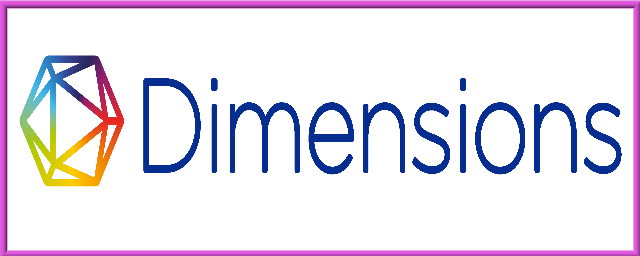Mengidentifikasi Model Pengembangan Instrumen Evaluasi Dalam E-Book Buku Teks Bahasa Indonesia
(1) Universitas Muhammadiyah Prof. DR. HAMKA Jakarta
(2) Universitas Muhammadiyah Prof. DR. HAMKA Jakarta
(*) Corresponding Author
DOI: https://doi.org/10.26858/pembelajar.v3i1.8719
Abstract
Pemanfaatan e-book merupakan salah satu alternatif untuk menunjang efektivitas pembelajaran. Artikel ini menyajikan refleksi kritis atas pemanfaatan e-book bahasa Indonesia sebagai media pembelajaran dalam mengidentifikasi model pengembangan instrumen evaluasi yang terdapat dalam buku teks bahasa Indonesia. Kegiatan ini berkaitan dengan pengajaran mata kuliah Evaluasi Bahasa dan Sastra pada salah satu universitas swasta di Indonesia. Dalam pembelajaran ini, mahasiswa dibagi menjadi beberapa kelompok yang terdiri atas dua sampai dengan tiga orang untuk berkolaborasi dalam mengidentifikasi berbagai jenis alat evaluasi yang dikembangkan dengan pendekatan diskret, integrative, ataukah pragmatic. Setelah para mahasiswa mengidentifikasi berbagai jenis instrument evaluasi secara berkelompok, mereka kemudian mempresentasikan secara bergantian. Berbagai temuan yang telah dipresentasikan selanjutkan didiskusikan bersama-sama dan diberi penilaian. Hasil Pembelajaran menunjukkan, bahwa rata-rata nilai mahasiswa sangat tinggi, yaitu sebesar 82. Pemanfaatan e-book bahasa Indonesia dapat dijadikan sebagai salah satu penunjang pembelajaran dalam mengidentifikasi model pengembangan instrument evaluasi pembelajaran bahasa Indonesia.
The use of e-books is one alternative to support the effectiveness of learning. This article presents a critical reflection on the use of Indonesian e-books as learning media in identifying models for the development of evaluation instruments contained in Indonesian textbooks. This activity is related to the teaching of Language and Literature Evaluation courses at one of the private universities in Indonesia. In this learning, students are divided into groups of two to three people to collaborate in identifying various types of evaluation tools developed with discrete, integrative, or pragmatic approaches. After the students identified various types of evaluation instruments in groups, they then presented them alternately. Various findings that have been presented later are discussed together and given an assessment. Learning Outcomes show that the average value of students is very high, which is equal to 82. The use of Indonesian e-books can be used as one of the supporting learning in identifying models for developing Indonesian learning learning evaluation instruments.
Keywords
Full Text:
PDFReferences
Aan Prabowo, Heriyanto, S.Sos., M. I. (2013). Analisis Pemanfaatan Buku Elektronik (E-Book) Oleh Pemustaka di Perpustakaan SMA Negeri 1 Semarang. Jurnal Ilmu Perpustakaan, 2(2), 1–9. Retrieved from http://ejournal-s1.undip.ac.id/index.php/jip%5CnANALISIS
Brown, H. D. (2003). Language Assessment Principles and Classroom Practices. -, 336. https://doi.org/10.1017/CBO9781107415324.004
Dore, R. A., Hassinger-Das, B., Brezack, N., Valladares, T. L., Paller, A., Vu, L., … Hirsh-Pasek, K. (2018). The parent advantage in fostering children’s e-book comprehension. Early Childhood Research Quarterly, 44, 24–33. https://doi.org/10.1016/j.ecresq.2018.02.002
Fojtik, R. (2015). Ebooks and Mobile Devices in Education. Procedia - Social and Behavioral Sciences, 182, 742–745. https://doi.org/10.1016/j.sbspro.2015.04.824
Fu, W. Q., Zhang, M., & Yan, L. Y. (2018). Academic e-Book Publishing in China: An Investigation of Current Status and Publishers’ Attitudes. Journal of Academic Librarianship, 44(1), 15–24. https://doi.org/10.1016/j.acalib.2017.12.008
Fulcher, G., & Davidson, F. (n.d.). LANGUAGE TESTING.
Glackin, B. C., Rodenhiser, R. W., & Herzog, B. (2014). A Library and the Disciplines: A Collaborative Project Assessing the Impact of eBooks and Mobile Devices on Student Learning. Journal of Academic Librarianship, 40(3–4), 299–306. https://doi.org/10.1016/j.acalib.2014.04.007
Gueval, J., Tarnow, K., & Kumm, S. (2015). Implementing e-books: Faculty and student experiences. Teaching and Learning in Nursing, 10(4), 181–185. https://doi.org/10.1016/j.teln.2015.06.003
Hanz, K., & McKinnon, D. (2018). When Librarians Hit the Books: Uses of and Attitudes Toward E-Books. Journal of Academic Librarianship, 44(1), 1–14. https://doi.org/10.1016/j.acalib.2017.12.018
Huang, J., & Mohan, B. (2009). A functional approach to integrated assessment of teacher support and student discourse development in an elementary Chinese program. Linguistics and Education, 20(1), 22–38. https://doi.org/10.1016/j.linged.2009.01.006
Jin, C. H. (2014). Adoption of e-book among college students: The perspective of an integrated TAM. Computers in Human Behavior, 41, 471–477. https://doi.org/10.1016/j.chb.2014.09.056
Letchumanan, M., & Tarmizi, R. A. (2010). Utilization of e-book among university mathematics students. Procedia - Social and Behavioral Sciences, 8, 580–587. https://doi.org/10.1016/j.sbspro.2010.12.080
Liesaputra, V., & Witten, I. H. (2012). Realistic electronic books. International Journal of Human Computer Studies, 70(9), 588–610. https://doi.org/10.1016/j.ijhcs.2012.02.003
Loukusa, S., Mäkinen, L., Kuusikko-Gauffin, S., Ebeling, H., & Leinonen, E. (2018). Assessing social-pragmatic inferencing skills in children with autism spectrum disorder. Journal of Communication Disorders, (December 2017). https://doi.org/10.1016/j.jcomdis.2018.01.006
Muhammad, M., Rahadian, D., & Safitri, E. R. (2017). Penggunaan Digital Book Berbasis Android Untuk Meningkatkan Motivasi Dan Keterampilan Membaca Pada Pelajaran Bahasa Arab. Pedagogia Ilmu Pendidikan, 15(2), 690–701. Retrieved from http://ejournal.upi.edu/index.php/pedagogia/article/view/8094
Osman, K., Halim, L., & Meerah, S. M. (2006). What Malaysian science teachers need to improve their science instruction: A comparison across gender, school location and area of specialization. Eurasia Journal of Mathematics, Science and Technology Education, 2(2), 58–81. https://doi.org/10.1016/j.sbspro.2012.06.903
Roskos, K., Brueck, J., & Lenhart, L. (2017). An analysis of e-book learning platforms: Affordances, architecture, functionality and analytics. International Journal of Child-Computer Interaction, 12, 37–45. https://doi.org/10.1016/j.ijcci.2017.01.003
Rusydi, I. (2014). Pemanfaatan E-Journal Sebagai Media Informasi Digital Ibnu Rusydi. Iqra’, 8(2), 200–210.
Rvachew, S., Rees, K., Carolan, E., & Nadig, A. (2017). Improving emergent literacy with school-based shared reading: Paper versus ebooks. International Journal of Child-Computer Interaction, 12, 24–29. https://doi.org/10.1016/j.ijcci.2017.01.002
Shim, D., Kim, J. G., & Altmann, J. (2016). Identifying key drivers and bottlenecks in the adoption of E-book readers in Korea. Telematics and Informatics, 33(3), 860–871. https://doi.org/10.1016/j.tele.2015.12.009
Smith, E., Næss, K. A. B., & Jarrold, C. (2017). Assessing pragmatic communication in children with Down syndrome. Journal of Communication Disorders, 68 (December 2015), 10–23. https://doi.org/10.1016/j.jcomdis.2017.06.003
Solihati, N., & Mulyono, H. (2017). A hybrid classroom instruction in Second Language Teacher Education (SLTE): A critical reflection of teacher educators. International Journal of Emerging Technologies in Learning, 12(5), 169–180. https://doi.org/10.3991/ijet.v12i05.6989
Tahara, K., Shimizu, H., Nakazawa, K., Nakamura, H., & Yamagishi, K. (2018). Life-cycle greenhouse gas emissions of e-books vs. paper books: A Japanese case study. Journal of Cleaner Production, 189, 59–66. https://doi.org/10.1016/j.jclepro.2018.03.321
Teruya, K. (2009). Grammar as a gateway into discourse: A systemic functional approach to Subject, Theme, and logic. Linguistics and Education, 20(1), 67–79. https://doi.org/10.1016/j.linged.2009.01.008
Wooten, J. (2008). Turning point: Toward an integrative model of foreign language education. Linguistics and Education, 19(1), 79–81. https://doi.org/10.1016/j.linged.2007.11.005
Yalman, M. (2014). Preservice teachers’ views about E-book and their levels of use of E-books. Turkish Online Journal of Educational Technology, 13(2), 138–147. https://doi.org/10.1016/j.sbspro.2015.01.469
Article Metrics
Abstract view : 181 times | PDF view : 27 timesRefbacks
- There are currently no refbacks.
Copyright (c) 2019 imam safi'i

This work is licensed under a Creative Commons Attribution-NonCommercial-NoDerivatives 4.0 International License.
Diterbitkan Oleh
Fakultas Ilmu Pendidikan Universitas Negeri Makassar
Kampus IV UNM Tidung, Gedung HP 101 Fakultas Ilmu Pendidikan. Jalan Tamalate I Tidung Makassar
Email : pembelajar@unm.ac.id
Contak HP: 085299149118 / 081342252446
Pembelajar terindex oleh:
![]()
Pembelajar is licensed under an Attribution-NonCommercial 4.0 International (CC BY-NC 4.0)









